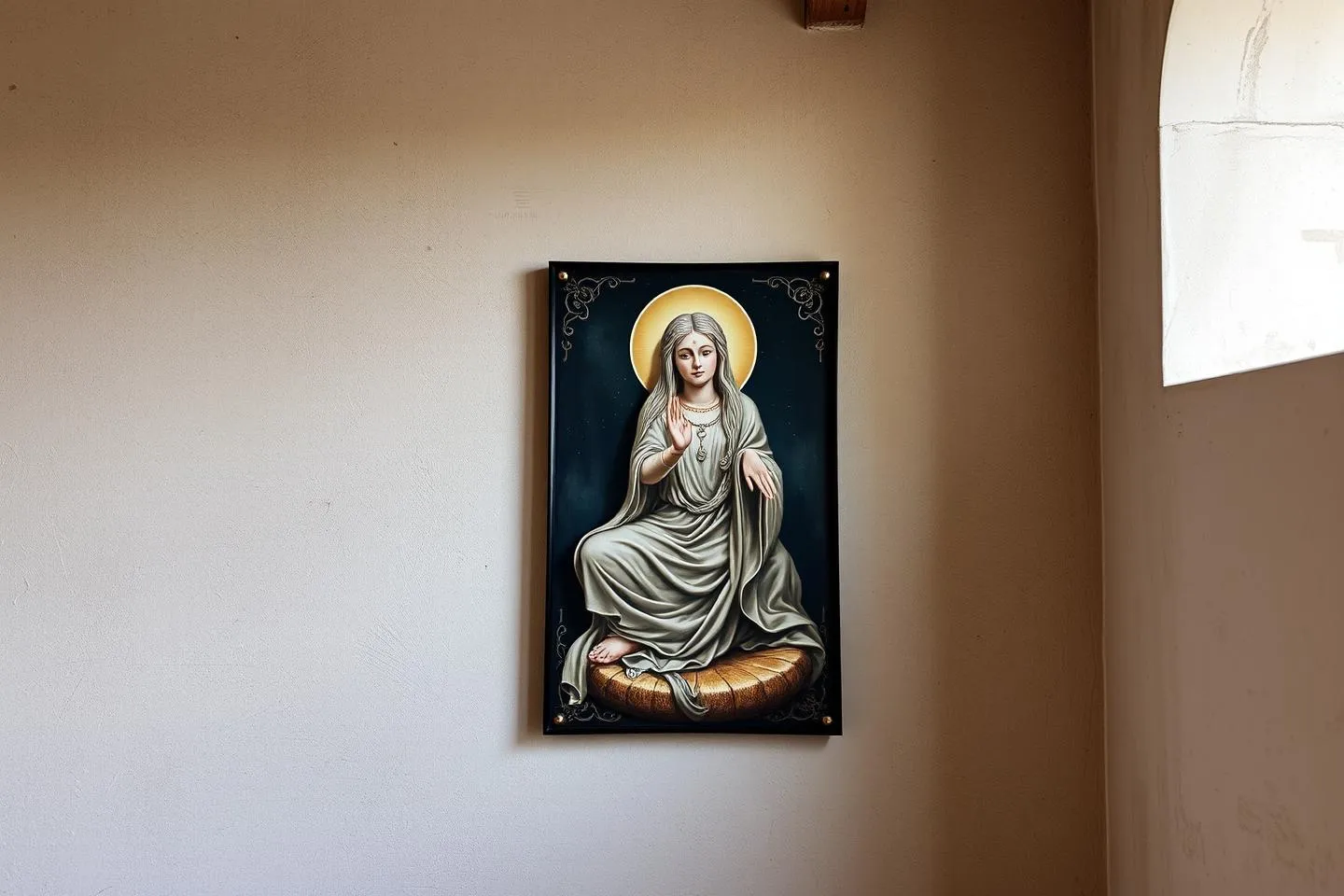When we talk about the picture on wall spiritual meaning, we dive into a fascinating world where art and spirituality intersect. Pictures hanging on our walls can carry deep significance, reflecting our beliefs, values, and aspirations. This blog post will explore various aspects of how imagery can play a vital role in our spiritual lives, guiding us on our journey toward inner peace and enlightenment.
The Significance of Imagery in Spiritual Spaces
Pictures in our living spaces do more than beautify our surroundings; they can embody our spiritual beliefs and values. When we select wall decor that resonates with us, we create an atmosphere that reflects our inner selves. This is especially true in spiritual spaces, where art can foster a sense of tranquility and connection.
Imagery serves as a daily reminder of one’s spiritual journey. Each time we glance at a meaningful picture, it can invoke feelings of love, peace, or reflection. For instance, a serene landscape might inspire mindfulness, while a portrait of a spiritual leader can remind us of our guiding principles.
The Role of Art and Imagery
Art and imagery contribute significantly to creating sacred atmospheres in homes and spiritual spaces. They can:
- Enhance Meditation: Images that inspire calmness can deepen meditation practices.
- Encourage Reflection: Thought-provoking art invites self-exploration and contemplation.
- Promote Positive Energy: Beautiful images can uplift our spirits and create a harmonious environment.
By incorporating art that resonates with us, we not only beautify our spaces but also enhance our spiritual practices.

Cultural Perspectives on Wall Decorations
Different cultures have unique interpretations of pictures on walls and their spiritual significance. The symbolism of colors, motifs, and images can vary widely between traditions. Understanding these differences enriches our appreciation for wall decor and its impact on spirituality.
Eastern vs. Western Traditions
In Eastern cultures, wall decorations often emphasize harmony, balance, and nature. For example:
- Buddhist Art: Depictions of Buddha and mandalas symbolize enlightenment and unity.
- Chinese Symbols: Images of dragons and phoenixes represent power and renewal.
Conversely, Western traditions may focus more on individualism and personal narratives. Symbolic imagery often reflects personal journeys, such as:
- Christian Icons: Depicting saints or biblical scenes conveys faith and guidance.
- Celtic Symbols: Knots and spirals represent eternity and interconnectedness.
Ancestral and Cultural Heritage
The impact of ancestral and cultural heritage on the choice of wall images cannot be ignored. Many people choose artwork that reflects their roots, connecting them to their lineage. This connection can enhance one’s sense of belonging and spiritual identity.
Connecting with Nature Through Wall Art
Nature has an intrinsic spiritual significance that many cultures recognize. When we depict natural elements in our wall art, we are tapping into a deeper connection to the earth and the universe.
The Spiritual Importance of Nature
Images of landscapes, animals, and natural phenomena can foster mindfulness and appreciation for the world around us. These images remind us of our place within the larger ecosystem and encourage a sense of gratitude for the beauty of nature.
Nature’s Influence on Spiritual Practices
Nature-inspired art plays a significant role in spiritual practices, such as:
- Meditation: Natural imagery can help ground us and facilitate a deeper meditative state.
- Reflection: Pictures of serene landscapes invite contemplation and inner peace.
- Connection to the Divine: Many believe that nature is a reflection of the divine, and art depicting it can foster that connection.
Transformational Symbols: A Table of Meaningful Imagery
Here is a simple table highlighting various picture types and their spiritual meanings:
| Picture Type | Spiritual Meaning |
|---|---|
| Mandalas | Unity, completeness, and spiritual journey |
| Sacred Geometry | Harmony, balance, and cosmic connection |
| Nature Scenes | Grounding, peace, and connection to the divine |
| Portraits | Ancestral connection and guidance |
| Mythological Figures | Archetypes and spiritual lessons |
Each type of imagery carries its own significance, allowing individuals to choose what resonates with their spiritual path.
The Intent Behind Your Chosen Images
Choosing images for your walls is not just about aesthetics; it’s about intention. The personal significance of selected pictures can greatly influence your mood and spiritual state.
The Energy of Images
Every image carries energy that can affect our environment. For example, a picture of a joyful scene can uplift our spirits, while a dark or chaotic image can create heaviness in the space. Therefore, it is essential to select images that align with your spiritual aspirations and promote positivity.
Practical Tips for Choosing Images
When selecting images for your wall, consider the following:
- Personal Connection: Choose images that resonate with your experiences and beliefs.
- Intention Setting: Reflect on what you want the image to bring into your life (e.g., peace, inspiration).
- Balance: Aim for a harmonious balance of different types of imagery to create a well-rounded spiritual space.
Creating a Sacred Display: Tips for Spiritual Arrangement
Arranging your wall decor thoughtfully can enhance its spiritual significance. A well-curated display encourages positivity, thoughtfulness, and a deeper connection to your spiritual path.
Space Clearing and Energetic Alignment
Before decorating, consider clearing the space of negative energies. This can involve:
- Cleaning the Area: Tidying up and physically cleaning the walls can create a fresh start.
- Setting Intentions: Take a moment to meditate on what you want your space to convey.
Suggestions for a Spiritually Resonant Display
Creating a sacred display involves more than just hanging pictures. Here are some tips to enhance your spiritual arrangement:
- Mix Media: Combine different types of art, such as paintings, photographs, and textiles, to create depth.
- Incorporate Personal Artifacts: Adding heirlooms or personal artifacts can enhance your connection to the display.
- Consider Placement: Hang pictures at eye level and in areas where you spend the most time to ensure they are seen and appreciated.
By thoughtfully arranging your wall decor, you create a space that encourages growth, reflection, and spiritual connection.
Conclusion
In summary, the picture on wall spiritual meaning is a rich and multifaceted topic. From the significance of imagery in spiritual spaces to the cultural perspectives on wall decorations, every aspect contributes to our understanding of art as a spiritual tool. By connecting with nature, choosing meaningful imagery, and creating a sacred display, we can enhance our spiritual journeys and foster a deeper connection with ourselves and the world around us.
Ultimately, the pictures we choose to hang on our walls can serve as powerful reminders of our beliefs, aspirations, and the spiritual path we walk. Embrace the power of imagery in your life, and let it guide you toward inner peace and enlightenment.
